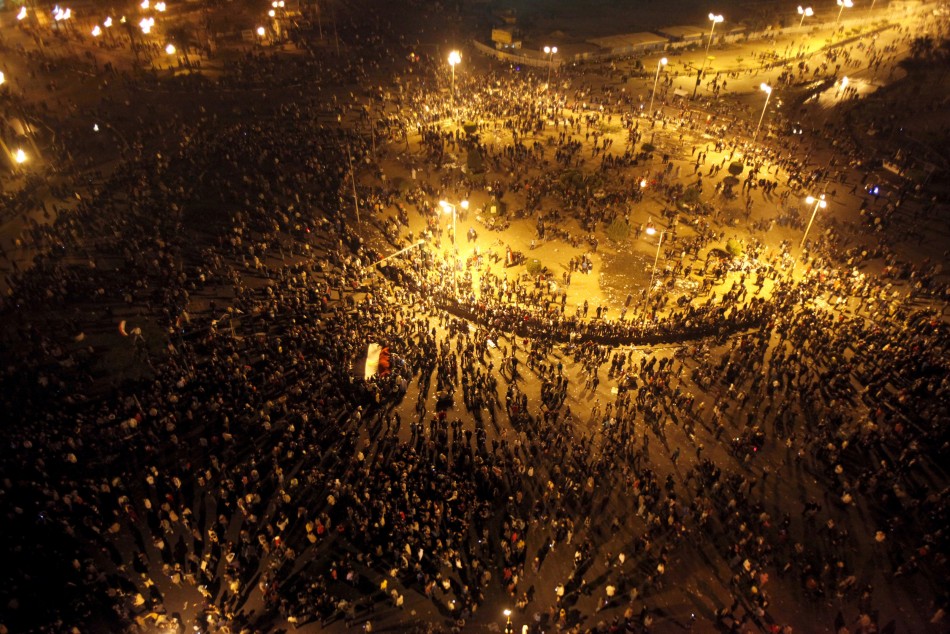Arab Autumn: Third Day of Violent Clashes in Egypt; At Least 13 Dead (PHOTOS)












In what seems eerily like a replay of February's revolution, protesters in Egypt have set up camp in Tahrir Square to call for regime change. The images and videos emerging from the demonstration show violence has once again gripped the country.
Having succeeded in toppling Hosni Mubarak's 30-year regime earlier this year, protesters in Egypt are now calling for an end to the military rule that replaced him.
Monday marks the third day of clashes between protesters and the army, as the ruling generals resort to violence and gunfire in an attempt to regain control of Tahrir Square. So far, at least 13 people have been killed, and hundreds more injured.
Those protesting say they are back in Tahrir to "finish the job" begun nine months ago.
"People have come down from their homes to join us; they removed the head once, and now they are back again to strike down the body," said Mai Adly, a 25-year-old reporter who was setting up for the night in Tahrir.
Social networks such as Twitter and Facebook have once again provided an outlet for those supporting the protesters' aims. Although there remains a certain incredulity that such scenes could be replaying again in Cairo only months after the fall of Mubarak.
"The kids I saw rebuilding the sidewalk during #Tahrir cleanup in Feb didn't realise [they] were actually putting the stones back for later," tweeted BBC Middle East Bureau Chief, Paul Danahar.
The spark this time has been an obscure piece of constitution drafted by the ruling Supreme Council of the Armed Forces that would see the army and its generals shielded from political oversight for decades to come. Demonstrators say that the legislation is an underhanded way for the ruling military junta to hold onto its grip on power.
It has taken months for the military, who were hailed as heroes during the first wave of protests earlier this year, to have become the target for the protesters' wrath. Since seizing power in the wake of Mubarak's departure, the SCAF have been seen to crack down on any sign of dissent, imprisoning many activists and bloggers and trying more than 12,000 civilians in military courts.
There have also been reports that the ruling generals have been subjecting female prisoners to humiliating and degrading "virginity tests" as a way of bringing charges of "prostitution" against them. One woman, Samira Ibrahim Mohamed, who has been brave enough to publicly testify against the tests, says she has had death threats and mysterious phone calls since revealing her experiences. She refuses to drop the charges, saying that "what happened to me can happen to any other girl."
Protesters say that the military have effectively hijacked February's revolution for their own political gains. "SCAF must leave because the people have seen through them," The Guardian reports one demonstrator as saying. "It has taken a long time, but the mask has slipped."
The fresh protests have cast a shadow on the parliamentary elections, due to take place on Nov. 28. Critics say the elections are merely a smokescreen to allow the military to cling on to power, and it is telling that the generals have yet to set a date for a transition to a civilian government.
© Copyright IBTimes 2025. All rights reserved.



















